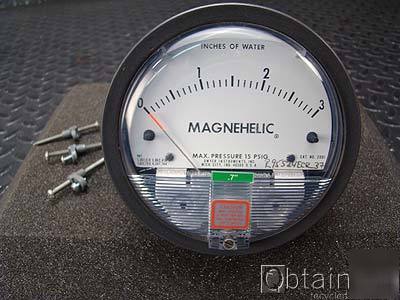passive flow bench for fan testing
Posted: Tue Oct 09, 2012 11:57 am
Hi all,
New to this forum but it seems like a very useful place to visit so figured I would post
I'm trying to measure the flow characteristics of a fan using a flow bench. Most of the online resources I've found are for active flow benches to measure flow rate at a specified pressure, which only somewhat apply to what I'm doing. I figured I should reach out and see if anyone has any advice/experience/suggestions for other resources I should look at.
It's a small fan for electronics cooling, with approximate maximum pressure drop of 300 Pa (1.2 in. wc) and flow rate of 65 scfm. My basic plan is to get a measurement unit (I've been looking at the Flow Performance one for no real reason other than I found it first) and several different orifices to vary the flow resistance and acquire data on different points on the curve. I'm somewhat worried about the low system pressure, as well as the general setup, so I was hoping someone could give me a few pointers.
Thank you!
Reuben
New to this forum but it seems like a very useful place to visit so figured I would post
I'm trying to measure the flow characteristics of a fan using a flow bench. Most of the online resources I've found are for active flow benches to measure flow rate at a specified pressure, which only somewhat apply to what I'm doing. I figured I should reach out and see if anyone has any advice/experience/suggestions for other resources I should look at.
It's a small fan for electronics cooling, with approximate maximum pressure drop of 300 Pa (1.2 in. wc) and flow rate of 65 scfm. My basic plan is to get a measurement unit (I've been looking at the Flow Performance one for no real reason other than I found it first) and several different orifices to vary the flow resistance and acquire data on different points on the curve. I'm somewhat worried about the low system pressure, as well as the general setup, so I was hoping someone could give me a few pointers.
Thank you!
Reuben


